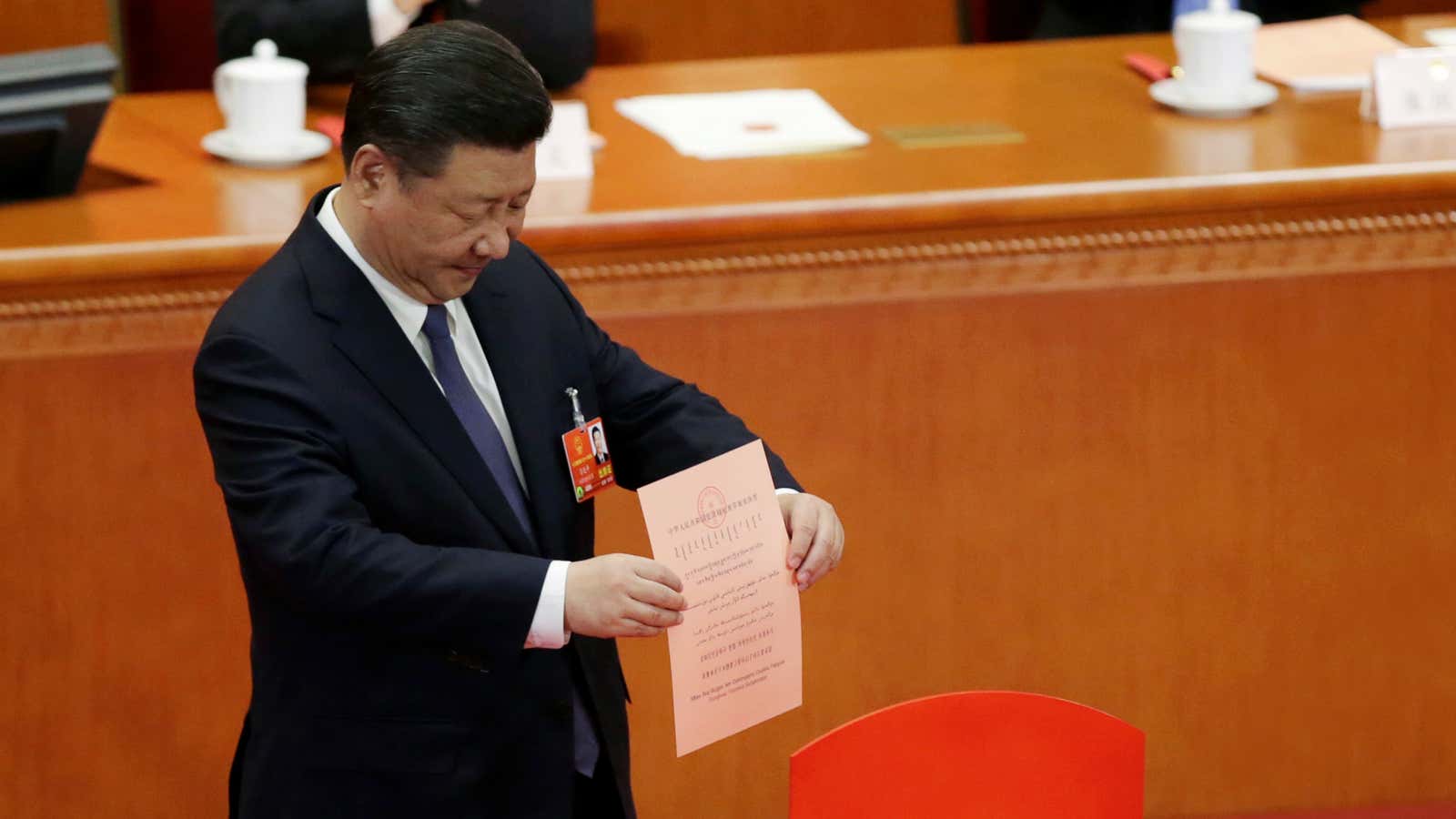It’s official. Xi Jinping can now be China’s president for life.
On March 11, 2018, China’s National People’s Congress voted to get rid of presidential term limits. It was no nail-biter; 99.8% of delegates voted for the measure. There were more abstentions and invalid votes than there were votes against.
Political commentator Wu Qiang told the Financial Times (paywall) that the two opposition votes, having come from the strictly chosen delegates, were probably the result of “personal conscience.”
Term-limits were put in place in 1982 by former president Deng Xiaoping to ensure that China would have collective leadership, and avoid the devastation seen under the authoritarian rule of Mao Zedong. Deng believed that a two-term, 10-year limit would lead to stability and orderly transfers of power. A quarter of a century later, Xi—now China’s most powerful leader since Deng—has consolidated enough power to abolish this constraint.
So what does he want with this absolute power? My colleague Zheping Huang writes that Xi claims the country faces some particularly precarious challenges over the next 15 years. Among those challenges include promoting economic growth that is equally shared, saving the environment and making sure China becomes the world’s leading nation. Xi believes his strong leadership is necessary to confront them.
More cynically, Xi may believe he must remain in power for self-protection. Xi has made a lot of enemies while in office. His anti-corruption campaign took down many powerful Chinese political figures. Xi’s enemies would almost certainly have a better chance of returning the favor by connecting him to a corruption scandal if he was no longer so powerful.
